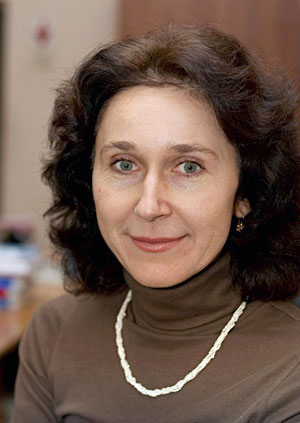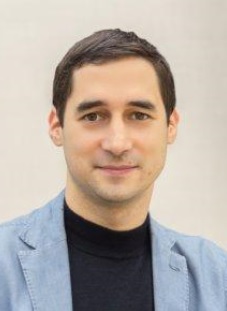Skoltech is an international graduate research-focused university that was founded by the group of world-renowned scientists in 2011. Skoltech's curriculum focuses on technology and innovation, offering Master's programs in 11 technological disciplines. Students receive rigorous theoretical and practical training, design their own research projects, participate in internships and gain entrepreneurial skills in English. The faculty is comprised of current researchers with international accreditation and achievements.
The Analytical Department on Science & Technology Development
The department, a division of Skoltech engaged in organizing and conducting analytical work and research in the field of science and technology policy, is preparing proposals for instruments and mechanisms of development of Russian science and technology. This department is drawing conclusions by analyzing global practices and taking into account the peculiarities of the Russian Federation. The department supports Skoltech through interaction with public authorities in making decisions in the field of science and technology policy in Russia: it monitors the trends and directions of development in world science, technology, and is interacting with the Russian diaspora scientists on tools and mechanisms to reform Russian science.
The department works actively with Russian government agencies, being involved in the actual processes of formation and implementation of state policy in the sphere of science and education. The key asset of the department is a network of contacts in the scientific community around the world, with scientists and researchers involved in the issues of reformation of science and education systems, as well as representatives of leading industrial companies. Due to its unique competencies, the department is able to respond quickly to new challenges in the world of scientific and industrial policy arising in light of development in the university and industrial environments.
The key areas of analysis and research activities of the department are:
- Priorities of science policy in the context of the modernization of the economy and building innovation policy
- Organizational changes in Russian science
- Regional aspects of science and technology policies
- Internationalization of the Russian science
- Mobility, networks, the circulation of professionals in the fields of technology, scientists and researchers
- Ways for development of Russian science as an integral part of the educational process
- Management system of Russian science
- The alignment of technological industrial priorities for the formation of a competitive environment on the international market
- New mechanisms of interaction between science and industry
- Technological priorities and tech standards
- Technology policy
Structure of the Department

Department Head – DEZHINA Irina
Irina Dezhina has a D.Sc. degree in economics (2007, RAS IMEMO). She was a Fulbright Scholar (1997), a Galina Starovoytova Award scholar at the Woodrow Wilson Center for International Studies (USA) (2013), visiting professor at the Aleksanteri Institute of Helsinki University (2019). Irina worked at SRI International (USA), served as a consultant for the World Bank, the European Bank for Reconstruction and Development, OECD, APEC, the EU Framework Program, the Russian Foundation for Technological Development, and other organizations. She is a RAS expert and a member of an expert panel in science policy studies at the Russian Foundation for Basic Research.
e-mail:

Deputy Department Head – GAREEV Timur
e-mail:
Activities of the Department
1. Monitoring of Technological Development in Russia and the World
2. Publications
- Factor of Demand on Electric Vehicles among Russian Population . Analytical Report. / Ed. Dezhina I.G. – Moscow: Pero, 2022. (RUS)
- Dezhina, I. G., Ponomarev, A. K. (2022). Approaches to Ensuring Russia’s Technological Self-Sufficiency. Science Management: Theory and Practice. Vol. 4, no. 3. P. 53–68. DOI: 10.19181/smtp.2022.4.3.5
- Dezhina I.G., Arutjunjan A.G., Ponomarev A.K. (2022). High-tech landscape of the cattle breeding industry in Russia. Journal of the New Economic Association, 1 (53), 240–248. DOI: 10.31737/2221-2264-2022-53-1-14
- Technological Transformation of Beef and Dairy Cattle Breeding. Analytical Report./ Ed. Dezhina I.G. – Moscow: Sputnik+, 2022. (RUS)
- Dezhina, I. (2021). The Publication Race in Russian Universities as an Impediment to Academic Freedom. Demokratizatsiya: The Journal of Post-Soviet Democratization. Advance online publication on Project MUSE. https://www.muse.jhu.edu/article/839074
- Dezhina, I.G. (2021). Podderzhka izbrannykh v sovremennoy nauchnoy politike Rossii [Picking winners in modern Russian science policy]. Public Administration Issues, no 3, pp. 53-74 (in Russian)
- Dezhina I.G., Kliucharev G.A. International Collaborations of the University Science: Incentives and Obstacles. Sociological Studies (Socis), 2021, no. 6, p. 34-45. DOI: 10.31857/S013216250014592-440-48
- Dezhina I., Ponomarev A. From science to technologies: new trends of government regulations // Innovations, 2020, no.10, p.30-40.
-
Dezhina I., Klucharev G. Russian Concepts of International Scientific-Technological Cooperation: Changing Drivers of Development // Sociology of Science and Technology, 2020, Volume 11, no. 4, p. 58-75. DOI: 10.24411/2079-0910-2020-14003
-
Dezhina I., Nafikova T. (2020) Global Landscape of Neuroscience and Place of Russia. World Economy and International Relations, vol. 64, no. 9, pp. 37-47. DOI: 10.20542/0131-2227-2020-64-9-37-47
-
Dezhina I. Science and Science-Technology Policy: Aspiration to a Leadership. In: Economic Policy of Russia. Turbulent Decade 2008-2018. М.: Publishing house “Delo” RANEPA, 2020. – pp.623-640.
- Dezhina I. Nafikova T., Gareev T., Ponomarev A. (2020) Tax Incentives for Supporting Competitiveness of Telecommunication Manufacturers Foresight and STI Governance, vol. 14, no 2, pp. 51–62. DOI: 10.17323/2500-2597.2020.2.51.62
- Dezhina I. Scientific “Centers of Excellence” in Russian Universities: Changing Models // EKO, 22020, No 4, pp.87-109.
- Technologies for Recovery and Expansion of the Human Brain Resources. Public Analytical Report/ Ed. Dezhina I.G. – M.: OOO «Laim», 2020. – 256 p.
- Dezhina I.G., Nafikova T.N. Tuition Fees as a Source of Funding and a Policy Instrument: International Experience // University Management: Practice and Analysis. 2019, 23(5), pp. 22-30. DOI: 10.15826/umpa.2019.05.038
- Dezhina I. Cooperation between universities and companies under digital economy challenges. In Challenges of digital transformation and high technologies business / N.A. Kravchenko, V.D. Markova, N.P. Baldina at al. / Edited by doctor of economics N.A. Kravchenko, doctor of economics V.D. Markova. – Novosibirsk: IEIE SB RAS, 2019. Pp.150-170. DOI: 1036264/CHALLENGES2019KNA
- Dezhina I., Nafikova T. EVOLUTION OF “INTERNET OF THINGS” CONCEPT AND STATE POLICY// World Economy and International Relations, 2019, vol. 63, no. 7, pp. 23-31 DOI: 10.20542/0131-2227-2019-63-7-23-31
- Prospective markets and technologies of the Internet of Things. Public analytical report / Dezhina Irina, ed. – Moscow, Laim, 2019. – 272 p.
- Dezhina I. Human Potential for the Development of Science and Technology // Human and Innovations. Report about Human Development in the Russian Federation. М.: Analytical Center for the Government of the RF, 2018. P.34-47. (in Russian)
- Dezhina I., Kliucharev G. Russian Education for Innovative Economy: “The Pressure Points” // Sociological Studies (Socis), 2018, no.9, p.40-48. DOI: 10.31857/S013216250001957-5 (in Russian)
- Dezhina I., Frolov A. Science and Technology Support for Oil Extraction in Russia: the Companies’ View // Innovations, 2018, no.5, p.54-61. (in Russian)
- Dezhina I. Innovation policy in Russia and the development of university–industry linkages // Industry and Higher Education, May 10, 2018. DOI: 10.1177/0950422218774974
- Dezhina I. Tendencies and Prospects of Russian-French Scientific Collaboration // Public Administration, 2018, vol.20, no.1, p. 84-89. DOI: 10.22394/2070-8378-2018-20-1-84-89
- Dezhina I. Russian innovation system in the digital era // Baltic Rim Economies, 2018, issue 2, p.52.
- aktualnye-tehnologicheskie-napravleniya-v-razrabotke-i-dobyche-nefti-i-gaza-publichnyj-analiticheskij-doklad / I.Dezhina, A.Myasnikov, D.Koroteev (Eds.). – Moscow: Bitubi, 2017.– 216 p.
- Dezhina, I. Science and Innovation Policy of the Russian Government: A Variety of Instruments with Uncertain Outcomes? // Public Administration Issues, 2017, no.5, p.7-26. doi: 10.17323/1999-5431-2017-0-5-7-26
- Dezhina, I. Innovation Policy in Russia and Pace of University-Industry Linkages Development // University-Industry Links: Coproducing Knowledge, Innovation & Growth. ICEIRD Conference Proceedings / Panayiotis Ketikidis & Dr Adrian Solomon (Eds.). Thessaloniki, Greece, 2017. P. 113-120. ISBN: 978-960-9416-11-5 ISSN: 2411-5320
- Dezhina I., Efimov A. Tech City UK // World Economy and International Relations, 2017, vol. 61, no. 3, pp. 94-99. DOI:10.20542/0131-2227-2017-61-3-94-99
- Dezhina I. Development of Network Interactions: the Role of Russian Cluster Initiatives // Innovations, 2016. No.9. P. 28-32 (rus)
- Dezhina I., Frolov A. Searching for Breakthrough Technologies: Photonics Case (rus) // Mirovaya ekonomika i mezhdunarodnye otnosheniya. 2017, № 6.
- Discussion of the Public Analytical Report on Photonics (Dezhina I., Ponomarev A., team of authors Public Analytical Report on Development of Photonics in Russia and the World (rus) / Moscow, 2016):
- Baklanov M. (2017) Skoltech has analyzed the development of photonics in Russia with respect to global trends (rus);
- The applicant in the priorities. Photonics has fascinated experts / Search. №4, 2017 (rus).
- Dezhina I., Ponomarev A., Gabitov, team of authors Public Analytical Report on Development of Photonics in Russia and the World (rus). – Moscow, 2016.-432 p. ISBN 978-5-9909093-0-4
- Frolov A.S., Dezhina I.G. Assessment of the Development of Photonics in Russia: Markets and Government Support (rus)// ECO, 2016, №9, P.32-45.
- Dezhina I. Russian-Speaking Researchers Abroad: Do They Want to Cooperate with Russia? Presentation made at 3rd International Sociological Association Forum on Sociology. University of Vienna, Vienna, Austria, July 12, 2016
- Dezhina I., Frolov A. Support of Photonics at the Staste level: a Comparative Analysis of International Experience (rus)// Innovations, 2016. No. 4. P.26-32.
- Dezhina I. has been awarded the title of Chevalier of the Ordre des Palmes Académiques (Order of Academic Palms)Chevalier (2016)
- Dezhina I. Innovation policy in Russia: development, challenges and prospects / Note from the Observatoire franco-russe, №12, 2016
- Dezhina I., Kuznetsov E., Korobkov A., Vasilyev N. Cooperation development with the Russian scientific diaspora: experience, problems and prospects (rus)/ 2015
- Dezhina I. Inter-sectoral mobility of scientific staff (rus) / IMEMO, Moscow, 2015
- Dezhina I. Russian scientific diaspora: experience, motivation and prospects for cooperation with Russia (rus) / 2015
- Dezhina I., Ponomarev A., team of authors Public Analytical Report on “Advanced Manufacturing Technologies” (rus) / Publishing house “Delo”, Moscow, 2015
- Dezhina I. BRICS countries: possible areas for scientific cooperation // MEMO Journal, №9, 2015
- Dezhina I., Ponomarev A., Frolov A. Advanced Manufacturing Technologies in Russia: Outlines of a New Policy // Foresight-Russia, vol. 9, no 1, pp 20-31
- Dezhina I., Ponomarev A., Frolov A., etc. Public Analytical Report on “Advanced Manufacturing Technologies” (rus)/ 2015
- Dezhina I., Ponomarev A. Advanced Manufacturing: New Emphasis in Industrial Development // Foresight-Russia, vol. 8, no 2, pp. 16–29
- Dezhina I. G. Russia’s Academy of Sciences’ Reform: Causes and Consequences for Russian Science. Russie. Nei.Visions.#77.May 2014. Ifri – Paris, 2014. 27 p. ISBN: 978-2-36567-275-7 (in English, Russian and French).
- Dezhina I. G. “Brain Drain” from Russia: How Is It in Reality? // Russia 2014. Annual Report of French-Russian Analytical Center Observo. Observatorie Franco-Russie, 2014. P.220-223 (in French and Russian).
- Dezhina I. New Science Policy measures in Russia: Controversial Observations // The Russian Analytical Digest, No.155, 23 September 2014. P. 11-14.
- Frolov A.S. Problems of planning scientific and technological development at the national level // Studies on Russian Economic Development, November 2014, Volume 25, Issue 6, pp 586-596
- Dezhina I. G. Intersectoral Mobility of the Scientific Staff – Global Trends and Russian Peculiarities // Public Administration Issues. 2014. #3. P.30-48.
- Dezhina I. G., Baryshnikova M., Klyagin A. Representatives of the scientific Diaspora as heads of Russian research projects: assessing the effects // Innovations. 2014. #5. May. P.9-14.
- Dezhina I. Technology platforms in Russia: a catalyst for connecting government, science, and business? // Triple Helix Journal, 2014. Volume 1, Issue 1.